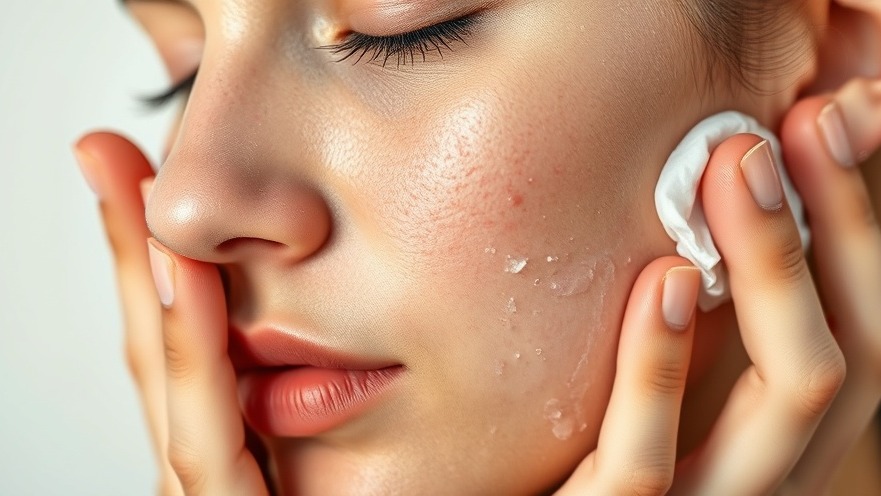
Understanding the Myths and Facts of Acne with Dr. Ted Lain
When it comes to acne, many people are eager to restore their clear, healthy complexion, but they often get lost in a sea of misconceptions. According to board-certified dermatologist Dr. Ted Lain, the journey to clear skin starts with separating fact from fiction. In the first installment of his series, Dr. Lain debunks six common myths regarding acne that can lead to ineffective treatment and frustration for those struggling with breakouts.
Myth #1: Strong Products Are Required for Clear Skin
A common misconception is that stronger products with high concentrations of active ingredients will provide faster results. Dr. Lain argues that using overly harsh products can actually harm your skin. "You don’t need strong products to clear your face; you need the right products," he emphasizes. Instead of searching for the harshest treatments, finding gentle, effective skincare is key, often referring patients to the CeraVe line for their acne solutions.
Myth #2: All Acne Treatments Are the Same
Another myth Dr. Lain frequently encounters is the belief that all acne treatments yield the same results. This is far from the truth. Each product can be tailored to specific skin types and concerns, featuring different active ingredients like benzoyl peroxide or salicylic acid. According to Dr. Lain, identifying the right product for your skin's needs is crucial. If various treatments have not worked for you, consulting a dermatologist can help tailor an effective regimen.
Myth #3: Oily Skin Doesn’t Need Moisturizer
Many with oily, acne-prone skin skip moisturizers thinking they will exacerbate their condition. Dr. Lain states otherwise. Hydration via a non-comedogenic moisturizer is essential because it helps restore the skin barrier, which is often compromised in those with acne. Utilizing lightweight moisturizers can combat the dryness caused by many acne treatments, thus preventing excessive oil production in response to dehydration.
Myth #4: Dry Skin Cannot Get Acne
Despite popular belief, individuals with dry skin can still experience acne. Dr. Lain notes that using the right moisturizing products is vital. He recommends solutions that contain ceramides to support the skin's barrier function, regardless of skin type, emphasizing that understanding how to hydrate the skin while treating breakouts is crucial for effective results.
Myth #5: Dirt Causes Acne
The misconception that dirt leads to acne is particularly widespread. Dr. Lain clarifies that while proper cleansing is crucial, over-washing or excessive scrubbing can result in irritation and worsen breakouts. It's essential to maintain a balanced skincare routine with gentle cleansing methods, as bacteria—not dirt—plays a more critical role in the formation of acne.
Myth #6: Dietary Changes Will Clear Acne
Lastly, many individuals believe that adjusting their diet will directly influence acne severity. Dr. Lain points out that while a healthy diet positively affects overall skin health, there is no concrete evidence supporting that specific dietary changes will cure acne. Consumption of non-organic dairy has been linked to increased breakouts, but each person's response to food can vary.
The Importance of a Daily Routine
What Dr. Lain emphasizes throughout these revelations is the importance of consistency in skincare. Acne treatments require patience and regular application to yield results. Typically, noticeable improvements can take a couple of months, and for those not seeing results, consulting a board-certified dermatologist can provide the personalized care needed to address unique skin concerns.
If you're looking for clearer skin, take the first step by debunking myths surrounding acne care. Consistent use of appropriate products is key, along with understanding the science behind acne. With the right information at your fingertips, achieving that clear, healthy complexion is entirely possible.
Remember: Your road to clear skin starts with the right information and having realistic expectations. Don’t hesitate to consult a licensed dermatologist if you’re unsure about your acne treatment strategy; they can help guide you on the path toward clarity and confidence.
 Add Row
Add Row  Add
Add 




Write A Comment